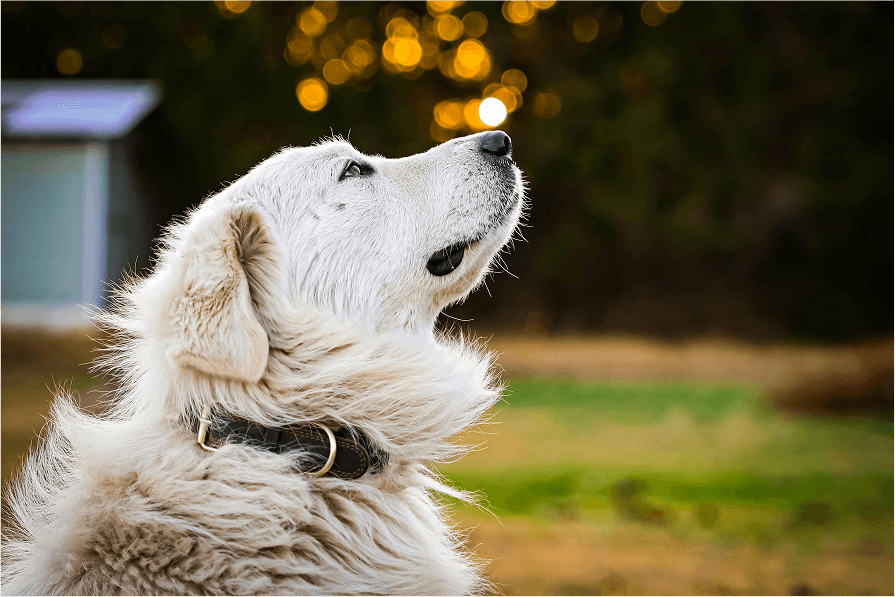5 Common Great Pyrenees Health Concerns
The Great Pyrenees is known as a gentle giant — loyal, calm, and a wonderful family companion. But like many large breeds, they’re prone to certain health issues.
Before welcoming one of these large furry friends into your family, it’s important to understand the breed’s health history. Below, we’ll share 5 of the most common Great Pyrenees health concerns.
Hip Dysplasia
Canine hip dysplasia occurs when a dog’s hip joint does not align properly with the hip socket. This hereditary condition is more common in some breeds than others, so it’s no surprise that the big-boned Great Pyrenees can be more susceptible to this condition.
Symptoms of hip dysplasia you may notice:
- Stiffness or difficulty walking
- Limping or favoring one leg
- Reluctance to run, jump, or climb stairs
- Decreased activity levels
Hip dysplasia can be corrected through surgery or physical therapy. Some dogs can get by with the help of pain medication or joint supplements. Your veterinarian may also advise lifestyle modifications to help your pet cope with the associated hip pain. Beyond these approaches, veterinarians are also turning to regenerative medicine, including mesenchymal stromal stem cell (MSC) therapies. Unlike treatments that only manage symptoms, regenerative therapies aim to restore health at its source by calming inflammation and supporting the body’s own repair processes. For dogs with hip dysplasia, this may mean greater comfort, improved mobility, and a more active life.
Regenerative medicine that goes deeper
See how Gallant is shaping the future of veterinary care with stem cell therapies. Learn more and find out how your pet may be part of our ongoing studies.
Addison’s Disease
Addison’s disease is caused by the underproduction of cortisol and aldosterone by the adrenal glands. Since these glands are responsible for regulating cortisol along with sodium and potassium levels, affected dogs may experience a variety of symptoms:
- Lethargy
- Diarrhea
- Changes in thirst or appetite
If the condition is chronic, your veterinarian may recommend administering fluids on a regular basis to replenish your dog’s levels. Luckily, dogs with this condition are fairly unaffected once diagnosed and treated. Still, some issues aren’t as easy to spot — many senior dogs quietly hide health problems, so it’s important to keep an eye out for subtle changes.
Bloat
Bloat is a serious condition in which a dog’s stomach fills with air, putting unnecessary pressure on its system. This condition is also called gastric torsion and can cut off blood flow to vital organs if left untreated. Dogs experiencing bloat may experience:
- Distended stomach
- Anxiety
- Excessive salivation
- Vomiting
- Restlessness
Dogs with suspected bloat must be treated immediately since the disease can be deadly. Immediate surgical intervention is necessary to correct the condition.

Entropion
Entropion is an eyelid abnormality in which the eyelid rolls inward. This dysfunction can cause hair to rub against the surface of the eye, which can be incredibly painful for your pooch and potentially interfere with vision. Dogs affected by the condition may squint, tear excessively, or develop discharge from the eye.
This condition is largely hereditary. Luckily, it can be corrected through surgery. Most dogs recover quickly from this condition once they have received proper treatment.
Osteosarcoma
Osteosarcoma, otherwise known as bone cancer, is unfortunately more common in Great Pyrenees pups. The condition creates tumors that break down bones over time, along with other tissues, including those of the kidney and liver. Osteosarcoma is incredibly painful and may cause swelling or lameness in the affected area.
This aggressive disease can only be properly treated through surgical removal of the affected area. If that avenue is no longer possible, your veterinarian may recommend chemotherapy. At the very least, affected dogs will have access to pain medication to help cope with the painful disease.
Great Pyrenees pups have a big heart to match their massive size. By understanding the breed’s health concerns, you’ll be well prepared as a pooch parent. Enjoy welcoming one of these gentle giants into your family!


